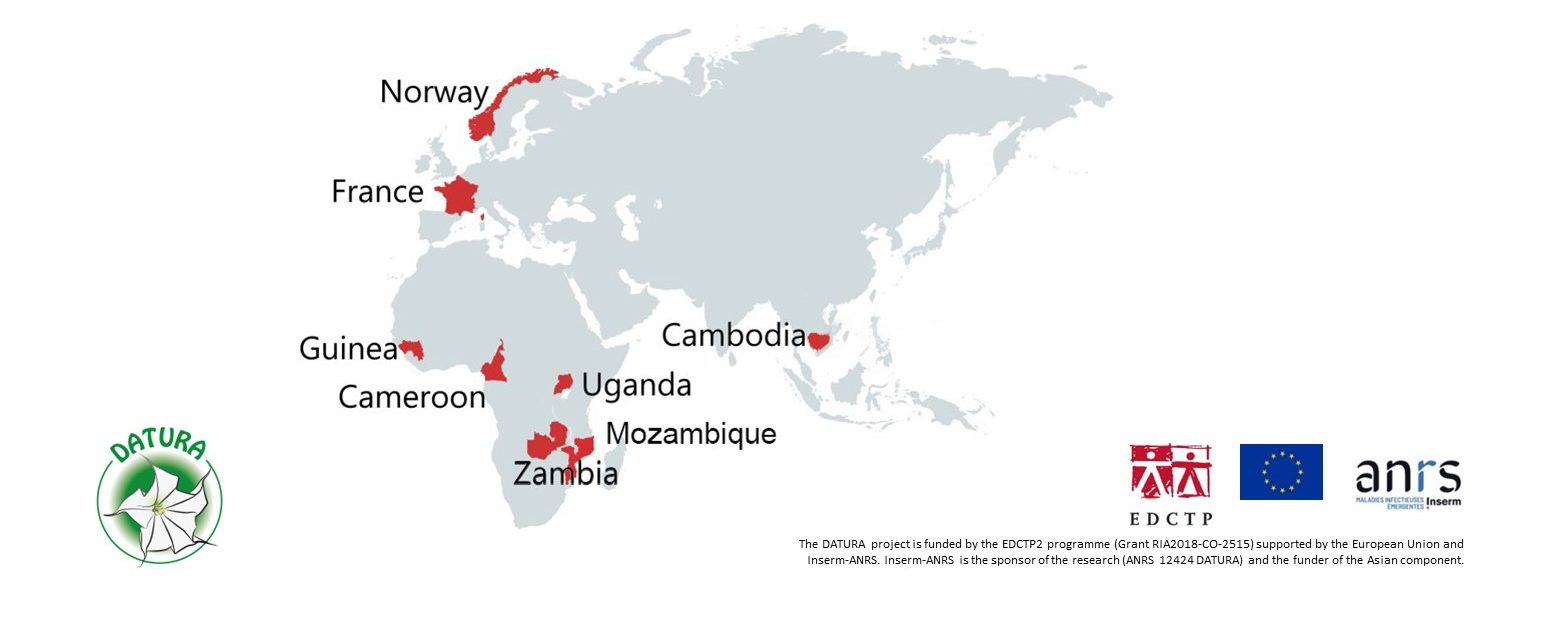Why undertake this research?
The DATURA project focuses on two infections on EDCTP2’s priority list (TB and HIV). The project results will contribute to the EDCTP2 programme’s expected impacts. Learn more about the EDCTP2 programme.
Expected impact #1.
Reduction of the number of cases of co-infections and co-morbidities in sub Saharan Africa and thus contribute to achieving the United Nations sustainable development goal #3 (SDG 3: ‘ensure healthy lives and promote well-being for all at all ages’).
DATURA will directly contribute to ensure healthy lives and well-being for People Living With HIV (PLWH).
WHO estimated that about 9.9 million persons developed TB in 2020; among these, 9% were HIV-coinfected and accounted for 19% of total deaths from TB (266,000-335,000). Approximately 72% of these TB-HIV coinfected patients live in Africa. The mortality rate among TB-HIV coinfected patients remains unacceptably high despite good access to TB treatment and earlier initiation of anti-retroviral therapy (ART). If our intervention proves to be as successful as expected (one third reduction of mortality) and if it is further translated into policy, thousands of deaths from TB could be averted each year in Africa.
In addition, if successful, our intervention will directly contribute to reducing the number of comorbidities, because by improving outcomes in TB-HIV coinfected patients, we will decrease the number of incidents of TB recurrence and TB transmission in close contacts such as partners or relatives.
To better contribute to SDG 3, we decided to also include adolescents aged 15 years and above. If successful, these adolescents will also have access to healthier lives and well-being. The logical next step would be to further lower the age limit of the intervention significantly, and to ultimately target younger adolescents and children. To do so, however, preliminary safety data are needed. Pregnant/breastfeeding women cannot currently be enrolled, mainly because of a lack of data about the effects of high doses of rifampicin and isoniazid in this group. However, this non-inclusion criterion may change if new data become available because it is crucial to target this population, which is, unfortunately almost always excluded from clinical trials.
Expected impact #2.
Advance product through the product development pipeline, and/or provide evidence to support label extension and/or be in line with EDCTP2’s strategic research agenda to be considered as having a higher impact.
The proposed work will clearly result in major advances in the field of HIV and TB. By evaluating an innovative strategy based on an intensified initial TB treatment, including the use of high doses of two commonly used TB drugs, namely rifampicin and isoniazid, and systematic use of corticosteroids, we will directly push forward the clinical development of the TB treatment intensification concept. If successful, this strategy could be rapidly adopted and implemented on sites because it is based on drugs that are well-known, registered, as well as being cheap, easy to use and to administer. This strategy of using existing drugs in a different way has already proved to be successful in other trials conducted by researchers in the Datura team. This approach will also improve knowledge on the safety and pharmacokinetics of high doses of rifampicin and isoniazid in these patients, and how the drugs might be impaired by the use of antiretrovirals (efavirenz or dolutegravir).
Other anticipated impacts of DATURA’s research
We will provide new information on the pharmacokinetics of high-dose rifampicin in HIV-infected patients. Such information is currently scarce. Using increased doses of rifampicin and isoniazid has recently been investigated to shorten the duration of treatment of drug sensitive TB, treat TB meningitis or multi-drug resistant TB. Our data will provide information on the particularities of HIV-immunocompromised patients in this respect, including any potential interactions with ART. Our data will also be instrumental in confirming the value of corticosteroids in preventing Immune Reconstitution Inflammatory Syndrome (IRIS) in these very immunocompromised patients.
